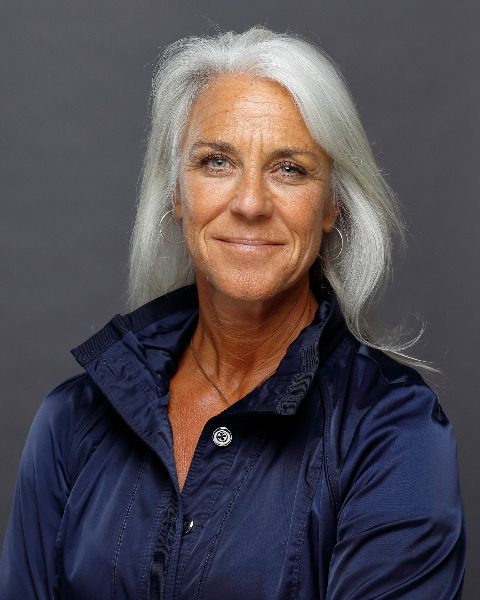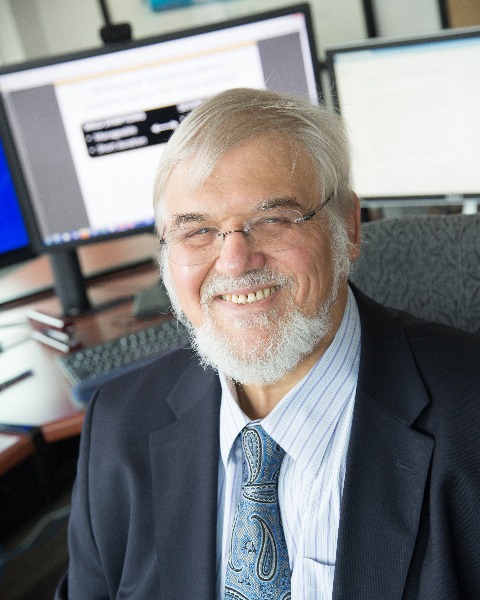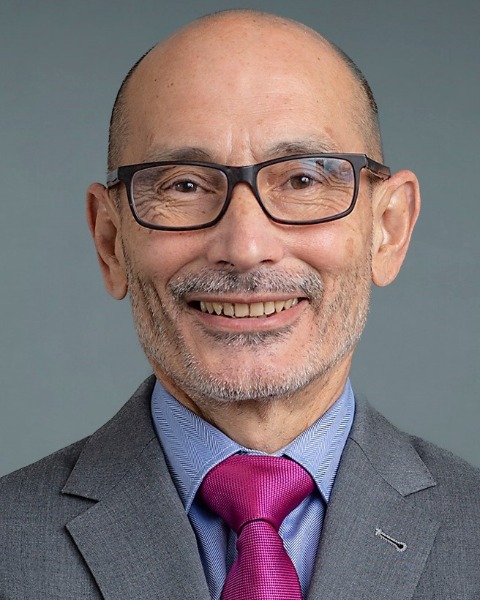
Policy/Practice Lessons in Opioid Use Disorder Treatment from COVID-19 Natural Experiments
-
Register
- Non-Member - $39
- Regular Member - $29
- Retired - $29
- Early Career Physician - $29
- Resident - $19
- Student - $19
- Associate - $19
- ASAM Staff - Free!
- International Member - $29
- Emeritus Member - $29
- Provisional Member - $29
- Fellow Member - $29
- Honorary Member - $29
- CRT Member - $29

Policy/Practice Lessons in Opioid Use Disorder Treatment from COVID-19 Natural Experiments
Recorded: Thursday, April 13, 2023 to Sunday, April 16, 2023
On-Demand Session
Overview
This 75-minute on-demand session from the ASAM 54th Annual Conference addresses the impact of COVID-19 policies related to medications for opioid use disorder and its effect on patients and providers.
COVID-19 allowed office-based providers and opioid treatment programs to try new approaches to treating patients with medications for opioid use disorder (OUD), including telehealth and methadone take-home doses. Foundation for Opioid Response Efforts-supported researchers have identified lessons from these "natural experiments" that could make treatment more accessible post-pandemic. This session pulls together teams from Arizona, New Jersey, and New York that have assessed the impact of COVID-19 measures on providers and at-risk OUD populations in their respective states and nationally.
The target audience for this intermediate level session includes physicians, nurse practitioners, physician assistants, other clinicians, researchers, residents, fellows, students, and counselors.
This session addresses the following ACGME Competencies: Patient Care and Procedural Skills, Practice-based Learning and Improvement
This session addresses the following IOM Competencies:Provide patient-centered care, Work in interdisciplinary teams
Learning Objectives
Upon completion, learners will be able to:
- articulate the impact of COVID-19 policies related to medications for opioid use disorder and its effect on patients and providers.
- compare the impact of COVID-19 policies related to medications for opioid use disorder across different states, treatment systems, as well as nationally.
- assess the impact of COVID-19 policies related to medications for opioid use disorder on high-risk populations, through a health equity lens.
Registration Rates
| Rate Description | Rate |
| ASAM Member | $29 |
| Non-Member | $39 |
| Associate Member | $19 |
| Resident Member* | $19 |
| Student Member* | $19 |
*Residents, Fellows-in-training, Interns, and Students must join ASAM to receive a discounted registration rate. Click here to become an ASAM member. National and Chapter membership dues apply. There is no charge for Students to become a Member, but verification of student status is required.
Membership Question? Call ASAM at 1.301.656.3920, email us, or view the ASAM website for more information.
Refunds & Cancellations
All ASAM e-Learning Center refund requests must be made in writing to education@asam.org within 90 days of purchase. Those requesting refunds for courses that are in progress will receive partial refunds or e-Learning Center credit. Automatic full refunds will be made for any course with a live-course component that has been cancelled.
Registration Deadline: 05/15/2026
Session Instructions
- Click on the Contents tab to watch the on-demand recording.
- Click Complete Post Test to answer multiple choice questions. Participants will have 10 attempts to pass and must answer 4 out of 5 questions correctly.
- Click Complete Evaluation to provide valuable activity feedback. Scroll down on all questions as there may be answer options that expand past the size of the window.
- Click the button Claim Medical Credits in the box titled Claim Credits & Certificate. Choose the type of credit and click submit. Click the button View/Print Certificate to save or print your certificate. You can view/print your certificate at any time by visiting the ASAM eLearning Center, clicking Dashboard, and clicking Transcript/Achievements.
Need Assistance?
For assistance logging in, accessing activities, claiming credit, or for other questions or concerns, please check the FAQ page or e-mail Education@ASAM.org
ASAM is proud to offer Essential Accessibility to ensure our website is accessible and functional for all our learners while providing free assistive technology for people with the widest possible range of abilities.

Beth Meyerson, PhD
Professor and Director, Harm Reduction Research Lab
Family and Community MedicineCollege of MedicineUniversity of Arizona
Beth Meyerson, MDiv., PhD
Professor
Family & Community Medicine, College of Medicine
Director
Harm Reduction Research Lab
bmeyerson@arizona.edu @Beth_Meyerson
Dr. Beth Meyerson is a Professor at the University of Arizona focused on harm reduction and sexual health policy and systems in the College of Medicine (Family and Community Medicine), where she directs the Harm Reduction Research Lab. Beth is also the Director of Graduate Studies for the MA in Program Design and Evaluation and affiliate faculty of UArizona’s Institute for LGBT Studies and the School of Government and Public Policy.
Dr. Meyerson moved to Tucson in late 2018 with her wife Jill German and their son Jacob. Prior to that time, she was a Bicentennial Professor of Health Policy & Management at the Indiana University School of Public Health-Bloomington, and the co-director of the Rural Center for AIDS/STD Research with affiliation at The Kinsey Institute.
Beth has three decades of public health practice and research experience, typified by roles as president of a policy research consultancy focused on HIV and sexually transmitted diseases with an international portfolio, as the state AIDS/STD Director for the state of Missouri, and directing a non-profit AIDS service organization.
Dr. Meyerson’s current service work includes chairing the Community Impact Committee of the Women’s Foundation of the State of Arizona, service on the national board of directors of Lambda Legal, the nation’s oldest civil litigation organization for LGBTQI+ communities and people living with HIV where she co-chairs the REAADI Committee (Race, equity, access, accountability, diversity and inclusion). Beth also serves on the policy and governance committees and the board of the Southern Arizona AIDS Foundation (SAAF), and chairs the Communications Committee with board service for the American STD Association (ASTDA).

Stephen Crystal, PhD
Director
Center for Health Services Research, Rutgers Institute for Health, Health Care Policy and Aging Research
Stephen Crystal, PhD, is Board of Governors Professor at the Institute for Health, Health Care Policy and Aging Research at Rutgers University, where he serves as Director of the Center for Health Services Research. He is a leading social and behavioral scientist, and his more than 330 papers and more than 100 technical reports, books, and other publications, with over 19,600 citations (h-index=77) have been highly influential in substance use and treatment, mental and behavioral health, and health policy, among other fields. Much of Dr. Crystal’s current work is focused on improving access to and retention in evidence-based substance use disorder (SUD) treatment, including medications for opioid use disorder (MOUD), across the healthcare system, particularly for marginalized populations. In this work, he has partnered closely with health systems, advocacy organizations, state agencies, and others to identify and reduce barriers to access, reduce disparities and increase equity in MOUD, increase access to and effectiveness of navigation and care integration programs, and identify and modify outdated bureaucratic barriers that too often hinder evidence-based SUD treatment and recovery success. Throughout his career, in both scholarly and public-sector leadership roles, his work has contributed to the development of more effective public systems and health policies for delivering evidence-based treatment for individuals with behavioral health needs. Dr. Crystal has led many R-01 projects funded by NIDA, NIMH, and AHRQ, as well as the AHRQ-funded Center for Education and Research on Mental Health Therapeutics, which served as a national observatory, center of evidence generation, and stakeholder resource on the safe and effective use of medications in behavioral health. Through this and his many R-01 and R-18 funded studies, he has been a national leader in generating evidence on the comparative effectiveness of strategies for addressing behavioral health challenges in publicly funded populations.

Charles Neighbors, PhD, MBA
Associate Professor
NYU Grossman School of Medicine
Charles Neighbors, PhD, MBA; is an Associate Professor in the Department of Population Health at NYU Grossman School of Medicine. Dr. Neighbors is a behavioral scientist who brings together clinical, statistical, and business expertise to understand and inform about healthcare reform and its impact on individuals struggling with addictions and mental health disorders.

Ayana Jordan
MD, PhD
Ayana Jordan, MD, PhD, is an Addiction Psychiatrist and the Barbara Wilson Associate Professor of Psychiatry in the Department of Psychiatry, at NYU Grossman School of Medicine and Pillar Lead for the Community Engagement in the NYU Langone Institute for Excellence in Health Equity. She is dedicated to creating opportunities for people of color. The message of equity and inclusion has informed her research, clinical work and leadership duties at NYU and beyond. Dr. Jordan was the first Black Associate Program Directors for the Yale Psychiatry Residency, supervising a large group of 64 physicians providing mental health and addiction services throughout Yale medical systems in the state of CT. She recently became Director of Equity, Diversity and Inclusion for the Justice Community Opioid Innovation Network within the National Institute of Drug (Ab)use, where she’ll be working to improve health outcomes for people with opioid use disorder in the carceral system. Dr. Jordan serves the medical director of Recognizing and Eliminating disparities in Addiction through Culturally informed Healthcare or (REACH), a Substance (Ab)use and Mental Health Services Administration grant, in conjunction with the American Academy of Addiction Psychiatry, geared at increasing the number of addiction specialists from racial and ethnic minoritized populations who obtain training to provide culturally-informed addiction treatment. Dr. Jordan is an NIH-funded researcher where she studies long term outcomes for providing addiction treatment in faith settings.
She is elated and inspired to exist in an environment supportive of her vision to work with communities, integrating the cultural and religious aspects of people’s lives, while also addressing structural inequities that impede improved mental health and wellness. Dr. Jordan is the proud recipient of various clinical and research awards and was inducted into the Top 40 under 40 society, by her undergraduate alma mater, Hampton University, a historically Black institution.

Ken Shatzkes, PhD
Program Director
Foundation for Opioid Response Efforts (FORE)
Ken Shatzkes, Ph.D. is Program Director for the Foundation for Opioid Response Efforts (FORE). Ken leads FORE’s grantmaking, programmatic, and communications activities and helps to identify new funding opportunities with a focus on patient-centered, evidence-based solutions addressing the nation’s opioid crisis.
Ken has over 15 years of experience performing biomedical research in academic, government, and non-profit settings. In 2017, Ken served as the Science Policy Advisor in the Office of the New Jersey Governor, providing evidence-based recommendations on state opioid initiatives and leading the Governor’s efforts as Chair of the President’s Commission on Combating Drug Addiction and the Opioid Crisis. Working closely with stakeholders and political leadership, he helped author the Commission’s report containing 65 federal policy recommendations aimed at curtailing the opioid crisis. Previously, he was a Rutgers-Eagleton Institute of Politics Fellow, placed in the Office of Intergovernmental and External Affairs at the U.S. Department of Health and Human Services, where he researched, tracked, and informed senior leadership of innovative state-led opioid-related initiatives. Prior to joining FORE, Ken was an Associate Program Officer at the Helmsley Charitable Trust, a global health philanthropy focused on improving patients’ lives, where he supported the development of innovative diagnostics for individuals living with Crohn’s disease. His other previous roles include laboratory research positions at New York University Langone Medical Center, the J. Craig Venter Institute, and the U.S. Food and Drug Administration.
Ken earned his Ph.D. in Biomedical Sciences (Immunology and Infectious Disease) from Rutgers, The State University of New Jersey and his B.Sc. in Biology (Molecular Genetics and Development) from McGill University.
CME, CE, CEU and Other Credit Types

ACCME Accreditation Statement
The American Society of Addiction Medicine is accredited by the Accreditation Council for Continuing Medical Education (ACCME) to provide continuing medical education for physicians.
AMA Credit Designation Statement
The American Society of Addiction Medicine designates this enduring material for a maximum of 1.25 AMA PRA Category 1 Credits™. Physicians should claim only the credit commensurate with the extent of their participation in the activity.
NAADAC, the Association for Addiction Professionals
This activity has been approved by the American Society of Addiction Medicine, as a NAADAC Approved Education Provider, for educational credits. NAADAC Provider #295, ASAM is responsible for all aspects of the programming.
California Association for Drug/Alcohol Educators (CAADE)
This educational program is approved by CAADE: #CP40 999 1225.
California Association of DUI Treatment Centers (CADTP)
This educational program is approved by CADTP: #205.
California Consortium of Addiction Programs and Professionals (CCAPP)
This educational program is approved by CCAPP: #OS-20-330-1224.
Continuing Education Credits (CEUs)
Non-physician participants will receive a certificate of attendance upon completion of the activity and an online evaluation confirming their participation. Participants should submit his/her certificate of attendance to their professional organization/institute.
Maintenance of Certification / Continuing Certification Program
American Board of Preventive Medicine (ABPM)
The American Board of Preventive Medicine (ABPM) has approved this activity for 1.25 credits towards ABPM MOC Part II requirements.
American Board of Anesthesiology (ABA)
This activity contributes to the CME component of the American Board of Anesthesiology’s redesigned Maintenance of Certification in Anesthesiology TM (MOCA®) program, known as MOCA 2.0®.
American Board of Pediatrics (ABP)
Successful completion of this CME activity, which includes participation in the activity, with individual assessments of the participant and feedback to the participant, enables the participant to earn 1.25 MOC points in the American Board of Pediatrics’ (ABP) Maintenance of Certification (MOC) program. It is the CME activity provider’s responsibility to submit participant completion information to ACCME for the purpose of granting ABP MOC credit.
American Board of Internal Medicine (ABIM)
Successful completion of this CME activity, which includes participation in the evaluation component, enables the participant to earn 1.25 Medical Knowledge MOC points in the American Board of Internal Medicine’s (ABIM) Maintenance of Certification (MOC) program. Participants will earn MOC points equivalent to the amount of CME credits claimed for the activity. It is the CME activity provider’s responsibility to submit participant completion information to ACCME for the purpose of granting ABIM MOC credits.
American Board of Surgery (ABS)
Successful completion of this CME activity, which includes participation in the evaluation component, enables the learner to earn credit toward the CME and/or Self-Assessment requirements of the American Board of Surgery’s Continuous Certification program. It is the CME activity provider's responsibility to submit learner completion information to ACCME for the purpose of granting ABS credit.
American Board of Psychiatry and Neurology (ABPN)
Successful completion of this CME activity can be used to satisfy the American Board of Psychiatry and Neurology’s (ABPN) CME requirement for Maintenance of Certification program.
American Board of Addiction Medicine (ABAM)
Successful completion of this activity can be used to satisfy the American Board of Addiction Medicine (ABAM) for Tmoc as credits towards ABAM LLSA Part II requirements.
Royal College of Physicians and Surgeons of Canada (RCPSC)
Royal College Fellows can use participation in Accredited Continuing Medical Education to earn Section 3 Credits.
Disclosure Information
In accordance with disclosure policies of ASAM and the ACCME, the effort is made to ensure balance, independence, objectivity, and scientific rigor in all CME/CE activities. These policies include mitigating all possible relevant financial relationships with ineligible companies for the Planning Committees and Presenters. All activity Planning Committee members and Presenters have disclosed relevant financial relationship information. The ASAM CE Committee has reviewed these disclosures and determined that the relationships are not inappropriate in the context of their respective presentations and are not inconsistent with the educational goals and integrity of the activity.

